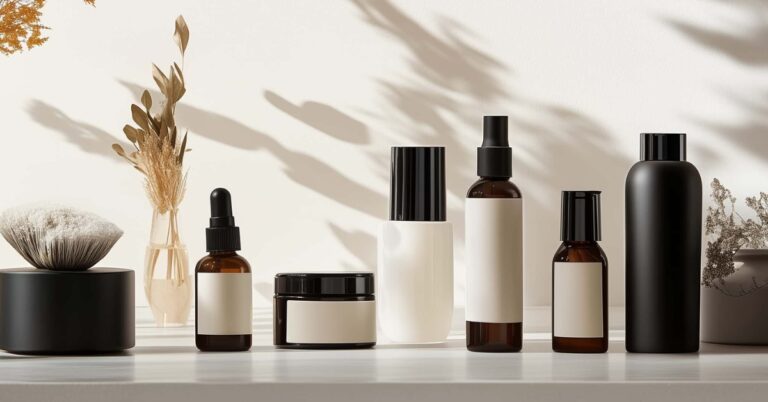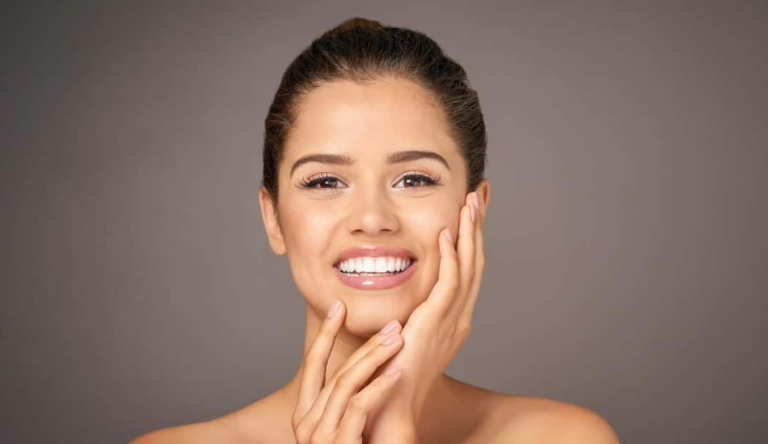Say Goodbye to Hormonal Acne: Effective Solutions That Work
Imagine waking up, looking in the mirror, and seeing a clear face smiling back at you. For many, battling hormonal acne can feel like an endless cycle of breakouts and disappointment. But, it’s a common issue, and the good news is, it’s manageable. This guide is here to walk you through understanding what hormonal acne is, its causes, and how to effectively treat it with both proven solutions and natural remedies. With the right approach, achieving balanced, healthy skin is within reach.
Whether you’re dealing with the occasional pimple or a more persistent case of acne, the journey to clear skin involves patience and care. By incorporating ingredients like vitamin C to combat pigmentation and adopting a holistic skincare routine, you can face hormonal acne head-on. Let’s dive into understanding the causes and exploring effective solutions that work for you.

What Is Hormonal Acne? Causes and Triggers
Hormonal acne, a troublesome condition, often flares up due to imbalances in hormones. This type of acne is not just a teenage dilemma but can occur at any stage in life, particularly during periods of stress, dietary changes, or hormonal transitions like pregnancy or menopause. It’s characterized by deep, painful cysts, primarily around the jawline, chin, and cheeks. These are not your typical surface-level pimples but are rooted deeper in the skin, often leading to pigmentation.
Stress, a common trigger, can exacerbate hormonal acne by increasing cortisol levels, which in turn boosts oil production in your skin. Imagine the stress of exams or high-pressure job situations; these aren’t just mentally taxing but can also manifest on your skin. Similarly, dietary habits that spike insulin levels, such as consuming high amounts of sugar or dairy, can influence hormone levels and aggravate acne.
Hormonal imbalances themselves can be triggered by various factors, including polycystic ovary syndrome (PCOS), pregnancy, and menopause. These changes can lead to an overproduction of oil, clogging pores, and creating an environment where acne thrives. It’s a reason why adults, especially women aged 20 to 40, often experience bouts of hormonal acne.
Understanding the triggers is crucial. Flare-ups can seem random, but they’re often linked to specific changes in your body or lifestyle. Recognizing these can help in managing the condition more effectively, guiding you towards treatments that address the root cause rather than just the symptoms.
Understanding Your Skin: How Hormonal Acne Works
Think of your pores like tiny doorways on your skin’s surface. Hormonal changes can cause these doorways to get clogged with excess oil and dead skin cells, leading to acne. When hormones like testosterone increase, your skin’s oil glands go into overdrive, producing more oil than your skin can handle. This excess oil sticks together with dead skin cells, blocking the pores and trapping bacteria inside, which leads to inflammation and those all-too-familiar breakouts.
Identifying your skin type is a key step in tackling hormonal acne effectively. For instance, oily skin might need a different approach compared to sensitive or dry skin. Understanding your skin’s needs helps in choosing the right products and treatments, preventing further irritation and breakouts. It’s not just about clearing the acne but nurturing a healthy skin environment that resists future outbreaks.
Moreover, hormonal acne doesn’t just affect the surface of your skin. It can impact self-esteem and how you feel about your appearance. However, by understanding how it works and adjusting your skincare routine accordingly, you can take significant steps towards clear, healthy skin and regain your confidence.

Proven Solutions to Manage Hormonal Acne
Managing hormonal acne effectively starts with a gentle skincare routine. Harsh products can strip your skin of its natural oils, leading to more breakouts. Instead, opt for gentle cleansers that remove impurities without over-drying. Hydration is also key; look for non-greasy moisturizers that hydrate the skin and help maintain its natural barrier. And don’t forget sunscreen. Protecting your skin from UV rays can prevent pigmentation and scars from getting darker.
Morning routines should focus on protection from the environment. Start with a gentle face wash, followed by a hydrating toner, a vitamin C serum to combat pigmentation, and a broad-spectrum sunscreen to shield your skin. At night, switch to recovery mode: cleanse thoroughly, apply a treatment product with ingredients like hyaluronic acid to hydrate and repair the skin, and lock in the moisture with a nourishing cream.
Integrating treatments like exfoliating with a gentle scrub once or twice a week can help remove dead skin cells and prevent clogged pores. However, it’s essential to not overdo it as scrubbing too hard or too often can irritate your skin and worsen acne. Consistency is key; give your skin time to adjust to new products and routines.
Remember, there’s no one-size-fits-all solution. What works for one person might not work for another. It’s about finding the right balance and set of products that suit your skin type and concerns. Patience and consistency in your skincare routine will eventually result in clearer, healthier skin.
Common Myths About Hormonal Acne (And What Actually Works)
One common myth about acne is that it only affects teenagers, but the truth is, hormonal acne can strike at any age. It’s not just a phase for young people; adults in their 20s, 30s, and beyond can experience it too. Another misconception is that scrubbing your skin hard can clear acne. In reality, gentle cleansing is much more effective and less likely to irritate your skin.
Many believe that oily foods lead directly to oily skin and acne. While diet does play a role in skin health, it’s more about the overall dietary pattern rather than specific foods causing breakouts. Similarly, the idea that makeup causes acne isn’t entirely true. Non-comedogenic and quality makeup products are designed to be safe for acne-prone skin.
Some think that letting acne run its course is the best treatment. However, proactive treatment and a good skincare routine can significantly reduce breakouts and prevent scarring. It’s also a myth that acne is purely a cosmetic issue; it can deeply affect one’s self-esteem and quality of life, making effective treatment crucial.
Understanding what actually works is key to managing hormonal acne. Gentle skin care, balanced nutrition, and avoiding known triggers can make a substantial difference. It’s about nurturing your skin and giving it the attention it deserves, rather than falling for common myths and misconceptions.

Natural Remedies: Balancing Your Skin Holistically
Natural remedies can be a gentle way to manage hormonal acne, complementing your daily skincare routine. Aloe vera, known for its soothing properties, can help calm inflamed skin and promote healing. Green tea, rich in antioxidants, fights inflammation and can be used as a toner to help clear the skin. Face masks made from sandalwood or multani mitti (Fuller’s earth) can absorb excess oil and reduce the appearance of pimples.
While natural remedies offer a holistic approach to skin care, it’s important to remember their limitations. They can soothe and improve the condition of your skin but might not be enough to combat severe acne alone. Incorporating these remedies with a balanced diet, adequate hydration, and a regular skincare routine can enhance their effectiveness.
It’s also crucial to be mindful of how your skin reacts to natural ingredients. What works for one person might not work for another, especially if you have sensitive skin. Always patch-test a small area before applying new products or ingredients over your entire face.
Finally, while natural remedies can play a role in achieving radiant skin, they should be part of a comprehensive approach that includes hydration, gentle cleansing, and sun protection. Together, these steps can help manage hormonal acne more effectively, leading to healthier, clearer skin over time.

When to See a Dermatologist: Signs You Need Expert Help
Knowing when to seek expert help for your hormonal acne can make all the difference. If you’ve been battling severe cystic acne, noticing scars that weren’t there before, or if your skin care efforts have shown no improvement after consistent care, it’s time to see a dermatologist. These professionals can offer treatments and insights that are beyond the reach of over-the-counter products.
Choosing the right dermatologist is crucial. Look for someone who specializes in acne and is up-to-date with the latest treatments. Don’t hesitate to ask questions about their experience and success stories. When you go for your appointment, expect a thorough examination of your skin and possibly some tests. This will help them tailor a treatment plan that’s right for your individual skin.
Remember, seeking help is a step towards clearer skin. A dermatologist can offer solutions like prescription medications, lifestyle advice, and even hormonal therapy, depending on your specific case. They are there to support you through your skin care journey, offering professional advice and emotional support.
Building Your Personalized Hormonal Acne Plan
Creating a personalized plan for managing hormonal acne starts with understanding your triggers. Pay attention to when breakouts occur – it could be related to your menstrual cycle, stress, or certain foods. Keeping a diary can help you pinpoint these triggers. Next, start testing products that are known to help with hormonal acne, such as those containing salicylic acid or benzoyl peroxide, but do it one at a time to see what works best for your skin.
Consistency is key to seeing results. Once you’ve found a routine that seems to help, stick with it, even if you don’t see immediate improvement. Skin care is a long-term commitment, and changes won’t happen overnight. It’s also important to be patient and kind to yourself during this process. Hormonal acne can be challenging, but with perseverance, most people see significant improvements.
Lastly, don’t forget to evaluate and adjust your plan as needed. Your skin changes over time, and what works now may need to be tweaked in the future. Regular check-ins with yourself about how your skin is responding will help you stay on track. Remember, managing hormonal acne is a journey, and it’s okay to seek help and adjust your approach along the way.
FAQs: Your Hormonal Acne Questions Answered
Does stress really cause acne? Yes, stress can indeed trigger acne. When you’re stressed, your body produces more androgens, which can increase oil production and lead to breakouts. Managing stress through activities like yoga, meditation, or exercise can help reduce the frequency and severity of acne flare-ups.
Are acne scars permanent? While acne scars can be persistent, they’re not always permanent. There are treatments available that can significantly reduce their appearance. Options include laser therapy, chemical peels, and microneedling. Consulting with a dermatologist is the best way to determine the most effective treatment for your skin type and the type of scars you have.
How long does it take to see results from a new acne treatment? Patience is crucial when it comes to acne treatments. It often takes at least six to eight weeks of consistent use to notice improvements. Some treatments might even cause a temporary increase in breakouts as your skin adjusts. It’s important to give treatments time to work before deciding if they’re effective for you.
Can changing my diet really help my acne? Yes, diet can play a significant role in the health of your skin. Foods high in sugar, dairy, and processed ingredients can trigger or worsen acne for some people. Focusing on a balanced diet rich in fruits, vegetables, whole grains, and lean proteins can support overall skin health and reduce breakouts for many individuals.
Final Thoughts: You’ve Got This!
Embarking on a journey to manage hormonal acne can feel overwhelming, but remember, you’re not alone. With the right information, support, and a bit of patience, you can find a routine that works for your skin. Implementing the tips and solutions you’ve learned will set you on the path to clearer, healthier skin.
Keep in mind that managing hormonal acne is a journey, not a sprint. There will be ups and downs, but each step you take is progress. Stay consistent, be patient with yourself, and don’t hesitate to seek professional help when needed. You’ve got this!







